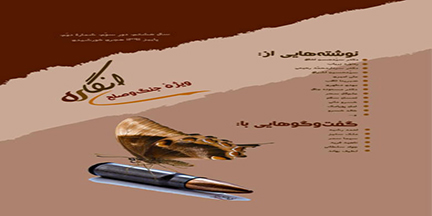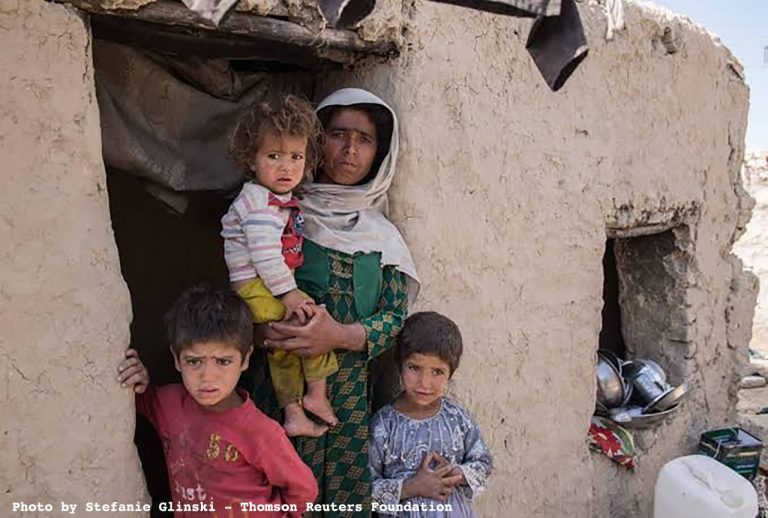Azizullah Ema
The native language begins as his first rhythm and vocal sounds that creates some kind of mutual understanding between children and mothers. Mother by the movements of the child in the abdomen and children by mother’s sense of body creates a helpful relationship. When a baby is born, the eye contact between mother and child is the first expression, child by crying makes her mother feel to breastfeed him.
Child’s language development process starts even before birth, voices of mother, father, environment is heard. The first sounds of children are in a way that mimics the sounds of long heard ones in abdomen combined with the vocals.
Children when hear words from mother and surroundings learn the first one-syllabic words. This short expressive words are the beginning of the game between child and mother. It can be said as some kind of language game between mother and child and is shaped by special rules. Childish words, although briefly, is sound in connection with the dialect mother and child environment, can be its first circle of understanding between mother and child or parent and child. Among the many sounds children hear, the tune and the beginning of a word’s spelling, are sometimes interconnected with the intermediate and final syllables:
Mother ( mader – Maa )
Father ( padar – Paa)
Come (Bya – Baa)
Go (boro- Bo)
The sounds play a fundamental role in the structure of their native language.
Dr. Tevh Tangas, professor and theorist about the native language says:
‘Native language is the language by which man thinks and dreams. “And adds that native language is like skin on body that does not change and other languages are not covering more.
Native language teacher with experience in Switzerland found that many children who have been away from the first environment, can learn another language quickly and soon in the new environment, but ideas and dreams are also distant from the native language. One must say that environmental factors have an impact even on the skin of humans, language and nature.
However, just a different view of Dr. Tevh Tangas that “the ability in the native language, enable children to learn other languages also,” I found in the experience among the eight student in native language class in Switzerland, I saw those sentences which are in native language and Farsi were written correct, in the German which was the second language – with all transformation rule – wouldn’t write wrong. Thus we see that the child who wants to learn the language and the language that is learned automatically, sometimes comparative approach training must be done with focus and contemplation.
A variety of myths and legends about states of childhood and its role in the fate and future of children’s literature can also be found. The story of Zal and Simorgh and feeding him by Deer and its subsequent effects, as well as the animals that after entering the human society does not forget and leave it entirely, hence it is not possible for the child’s situation too. These creatures say in some kind of relationship between the child and the surrogate mother and the father and create a child nurturing relationship which leads to the signs that remains in the child.
It’s here, I know that mutual understanding among dumb children and mothers and deaf and blind children with normal mothers and vice versa takes place in another way. The native language in everywhere is not always in the form of audio language and speech.
As Habermas said about the problem of language relationship, it can also be in the relationship between children and mothers. Habermas does not summarize the aspects of language, syntax and semantic speech act in a memorandum of mutual understanding and is considered important. The beginning of maneuver in mother and child relationship can be well understood. The relationship between child and mother in Foreword stage, are the movements and gestures that comes between the child and the mother for mutual understanding.
Total emotional give and take and understanding between mother and child before and after the formation of the native language, is one of the important fragments and fundamental of human. Any violation of these relations are a way to disrupt the normal process of language and thought that his world was and is in the breadth and extent.
The importance of the native language can be seen in other color of foreign encounters. Pressure to change the language of the expatriate, resulting in the recognition of the importance of language. Language is not just a tool, but is your thought and culture.
If you look at the history of countries and languages, we see the products and creations with other languages, each language is different. As Khayyam and Rumi is from the Persian environment and language, Shakespeare can be understood in terms of English language and culture around it. Same is the effects of Japanese language culture and climate on beautiful flower gardens of Haiku cannot be denied.
In countries and communities we still witness language bullying, segregation and exclusion, we see that still there are lack of growth with the stagnation of thought.
If in our country, indigenous languages and various dialects and training opportunities were in the areas of language, native language were practiced in the first place, today we would have had a wide foundations in languages, Uzbeks, Turkmen, Balochi, Hindi and other languages would have a positive effect on Persian and Pashto.
All links to diversity are to accept, have respect for and acceptance of their native language and other multilingualism.
One of destroying factor is domineering attitude towards the other languages. This root causes a crisis that even next century could see in a country. We can see that today still a number of educated people talk of bitterness and sweetness of a language. We are witness of the bad effect of imperial behavior in various classes. On one side there are long established languages such as Baluchis, Turkmen, Hindi, Nuristani, and so….we find lacking of any procreative within the country and on the other hand we see the worst attitudes towards language. With regards to the languages that do not produce, we could be built on the richness and excellence of book holders, famous mass culture, entry from one language to another, without the give and take in the natural history of language over time, it has led to the way to language discrimination, chaos, conflict.
What still leads the mind of Extremist nationalist and dictatorship is, the lessons of the expatriate era. Today in language development outrageously, the destruction and repressing other languages, is considered a humanitarian catastrophe.
Children, if in the early years of life, the years of building the foundations of identity and native language which is inextricably linked, one and all at once, according to an unhealthy factors governing schools, are unable to study in native language, the psychological devastating actions interactions will be with him all of life. Hence, learning in the native language might be the right of every child.



